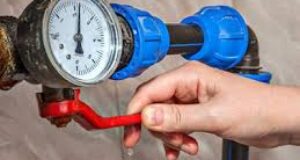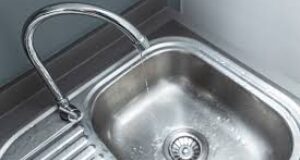Sudden low water pressure in a house can disrupt daily activities and leave homeowners frustrated. This common issue may occur for various reasons, ranging from simple fixes to more complex plumbing problems. In this article, we’ll explore the causes of low water pressure, including sudden drops, and discuss practical solutions to restore proper flow.

Common Causes of Low Water Pressure
Sudden Drops in Pressure Sudden low water pressure in a house can happen due to an unexpected issue, such as a burst pipe, malfunctioning water pump, or municipal supply disruption. Identifying the source of the sudden drop is essential for a quick resolution.
Multiple Fixtures in UseWhen several plumbing fixtures are used simultaneously, the water pressure at each fixture can drop significantly. This is especially noticeable during peak hours, such as mornings and evenings when household water usage is at its highest.
Demand on the Main Water SupplyIn some cases, the municipal water supply may struggle to meet demand, leading to reduced pressure in neighborhoods. This issue is often temporary and resolves when the demand decreases.
Height-Related Pressure LossLow water pressure can occur in multi-story buildings when the water supply struggles to reach upper floors. While rare, this problem is most critical during emergencies when consistent water flow is essential.
Pipe IssuesProblems within your plumbing system, such as mineral buildup, corrosion, or leaks, can significantly reduce water flow. These issues may affect specific fixtures or the entire household water supply.

How to Identify Low Water Pressure
Low water pressure is easy to detect by observing the flow at your taps or showerheads.
Fill a 4.5-liter bucket with water.
Ensure no other taps or appliances are using water.
If it takes more than 30 seconds, it indicates a potential issue with water flow or pressure.
Major Causes and Their Solutions
Mineral and Debris Buildup in PipesOver time, minerals and debris can accumulate inside water pipes, restricting flow.Solution: Use plumbing chemicals or consult a professional plumber to clean the affected sections.
Pipe CorrosionCorrosion inside pipes can lead to significant blockages.Solution: Replace the corroded pipes. Although costly, it ensures long-term benefits.
Leaks in PlumbingLeaks in your plumbing system reduce water pressure and waste water.Solution: Identify and repair leaks promptly with the help of a plumber.
Municipal Water Supply MalfunctionsIssues in the municipal water network, such as pipe bursts or maintenance work, can lower pressure.Solution: Report the problem to your local water authority and consult plumbers for temporary fixes.
Sudden Pipe Bursts or MalfunctionsSudden low water pressure in a house may also result from an unexpected pipe burst or pump failure.Solution: Turn off the main water supply and contact a plumber immediately for emergency repairs.
Best Solutions for Low Water Pressure
Install a Water Pressure Boosting PumpA water pressure booster pump is an excellent solution for increasing flow rates in homes with consistently low water pressure. These pumps are especially useful in areas where multiple households share the same water supply line.
Regular Pipe MaintenanceSchedule regular inspections to prevent and address mineral buildup or corrosion in pipes.
Upgrade Plumbing SystemsIn older homes, replacing outdated plumbing systems can significantly improve water pressure.
Use Efficient FixturesConsider installing modern fixtures designed to work efficiently under low water pressure conditions.
Address Sudden Pressure Drops Promptly Sudden low water pressure in a house should be investigated immediately to prevent further damage or inconvenience. Regularly monitor your plumbing system to catch issues early.
Low water pressure, whether sudden or gradual, can be a frustrating issue. By understanding the common causes and implementing the right solutions, you can restore normal water flow and improve your home’s plumbing system. Always consult a professional plumber for accurate diagnosis and reliable solutions tailored to your home’s needs.




